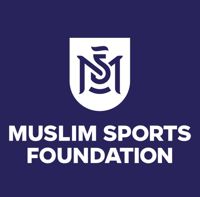
Board Development Fund
The SGA Board Development Fund enables organisations operating in the sport and physical activity sector in the United Kingdom to access - free of charge - development training for their board members which can be customised, if required, and delivered in-house (either in-person or online). It allows organisations successful in the application process to identify areas of need or areas of particular focus for them which are not catered for by existing training provision.
The fund provides the flexibility to meet the needs of organisations with different requirements for their board's development and to provide training support in specific areas of governance.
The fund is limited and applications will be assessed against specified criteria, which include the specific need answered, the benefit to the organisation and the organisation’s access to paid-for training. Priority will be given to organisations that would otherwise be unable to obtain the requested training due to financial constraints.
Quick links
-

Apply now
Click here to apply now for the Board Development Fund 2026. Applications are open until 20 March 2026 at 21:00.
-

Board Development Fund Information Sessions
Watch the recording from our Board Development Fund Information Session with Emma Argall & Terri Le Couteur.
-

Application Support
Want to get the most out of your application and learn more about how you can and also definitely shouldn't use AI? Find out more here
Available courses
Within these areas, we will work with the organisations who apply successfully to understand their specific requirements and tailor the course content to their needs.
Whilst we are able to heavily tailor courses to suit your needs where appropriate, this fund does not cover training or trainers that you have sourced yourself.
If your organisation is interested in multiple courses, you are able to make up to 2 applications. However, if your application is successful, your organisation will only be awarded 1 course.
The application process
Applications are invited from organisations in the SGA community during the application window.
We have two application windows.
- Application window 1 opens 10 February 2026 and closes 20 March 2026.
- Application window 2 opens 25 May 2026 and closes 19 June 2026
As part of application window 1 applicants are able to opt in to roll over their application to the second window if they were unsuccessful in the first. Please only do this if you are able to wait for the training later in the year. New applicants may apply in application window 2 and applicants from application window 1 may amend their original application or make a new one.
All training applied for in the 2025 cycle must be completed by 30 November 2026.

Decisions on requests for training are made on the basis of responses to the questions contained in the online application form. Applications are scored according to the following criteria which have been agreed with our partner Sports Councils:
If you would prefer to answer the application in another format such as verbally over a video call please email us before the application deadline in order to organise a time.
Application criteria
PLEASE NOTE: Organisations must operate in the sport and physical activity sector in the United Kingdom. Organisations from Crown Dependencies are ineligible for the Board Development Fund.
1) What specific need will this training address and how was this need identified?
Please use clear and relevant examples to focus on the need and why this training addresses it and NOT the potential benefits. This is asked in the next question.
|
|
Scoring (out of 10) |
Identification |
Identification process |
|
Specific training needs addressed by the training (350 word limit) |
8+ |
The organisation has identified specific areas of development for the board and these are met by the training requested. |
The applicant clearly demonstrates why the board needs this training and how this was identified. |
|
6-8 |
The organisation has identified specific areas of development for the board but these are only partly addressed by the training requested. |
The applicant clearly demonstrates why the board needs this training but lacks some clarity regarding how it was identified. |
|
|
4-6 |
Some consideration has been given to specific needs of the board but the explanation is not well defined. |
The applicant gives a limited explanation as to why the board needs this training and lacks clarity regarding how it was identified. |
|
|
<4 |
Little or no consideration has been given to specific needs of the board or how these will be addressed by the training requested. |
Little or no explanation is provided as to why the board needs this training and to how the need was identified. |
2) How will the specified training benefit the board and the organisation? What areas of governance capability will it impact and how?
Please use clear and relevant examples to back up your claim.
|
|
Scoring (out of 10) |
Board Benefit |
Organisational Benefit |
|
Benefit of training to the board and organisation (350 word limit) |
8+ |
The applicant clearly identifies how the implementation of the knowledge and skills gained from the training will significantly benefit the board using clear and relevant examples.
|
The applicant clearly identifies how the board's implementation of the knowledge and skills acquired will benefit the wider organisation. They use clear and relevant examples that offer significant benefits without being overstated. |
|
6-8 |
The applicant clearly identifies how the implementation of the knowledge and skills gained from the training will offer reasonable benefits the board using clear and relevant examples. |
The applicant clearly identifies how the board's improved understanding and processes present reasonable benefits for the wider organisation using clear and relevant examples. |
|
|
4-6 |
The applicant has demonstrated some consideration for how the implementation of the knowledge and skills gained from the training will present modest benefits to the board. |
The benefits to the organisation are modest and the supporting examples lack detail. |
|
|
<4 |
The applicant has provided insufficient or no examples of how the training course will benefit the board. |
The applicant has provided insufficient or no examples of the benefit to their organisation. |
3) What board development planning has your organisation undertaken and how would the requested training complement it?
Please note: Our intention is to see how the requested training will fit with any wider development plans, not to penalise you for not having an exhaustive plan. We appreciate that organisations are at different stages and have varying needs. We welcome submissions from all.
|
|
Scoring (out of 5) |
Self-understanding |
Training fit |
|
Other board development activity (250 word limit) |
4+ |
The organisation has a strong understanding of where it sits on its governance development journey and the application explains its current needs & skills and the organisation's strategic direction.
|
A clear explanation of the role of the requested training in the organisation's development is provided. The training course requested will clearly complement other training/development undertaken OR in the case that none has been undertaken, it is clear that this training will enable the organisation to progress and be better equipped to learn more going forwards. |
|
2-3 |
An attempt has been made to understand where the organisation sits on its governance development journey but the explanation of the needs & skills and the organisation's strategic direction lack detail. |
Some explanation of the role of the requested training in its development is provided. The case is made that the training will provide some positive contribution, however any explanation as to how the training course will complement other developmental activities being undertaken lacks detail. |
|
|
<2 |
There is little to no understanding of the board's current governance needs and skillset. |
No attempt has been made to explain how the training fits with the organisation's development and no attempt has been made to show how the training will fit with any other developmental activities being undertaken. |
4) Building on your answer to question 2 about how the course benefits your board and organisation, how will you measure the impact of the training?
|
|
Scoring (out of 5) |
Measurement |
|
Measuring Impact (250 word limit) |
4+ |
Using the desired benefit from question 2, the applicant clearly explains a suitable and realistic method of measuring the impact based on the anticipated outcomes. |
|
2-3 |
The applicant offers a method for measuring impact. However, it either lacks some realism or suitability when compared to the anticipated outcome. |
|
|
<2 |
Little to no method for measuring impact is provided and if a method is proposed it would be highly unsuitable as a form of measurement. |
Are other sources of funding available to either you or your organisation that will allow you complete this training?
|
|
Response |
Explanation |
Criteria |
|
Financial need/limited funding (150 word limit) |
Yes |
The organisation could access other forms of funding for this training |
Access to funds is prioritised for those organisations who would otherwise be unable to obtain training/development due to financial need or limited funding opportunity. |
|
No |
The organisation could not fund this training if unsuccessful in its application. |
Has your organisation received any financial support for training provision in the past 12 months?
|
|
Response |
Explanation |
Criteria |
|
Other funded training (150 word limit) |
Yes - through the Board Development Fund |
The organisation received training through the Board Development Fund in the past 12 months |
Many organisations do not receive funded board training. If you have received funded training in the past 12 months, please provide details as to why more funded training is necessary. |
|
Yes - through other funding avenues |
The organisation received training through another funding channel in the past 12 months |
||
|
No |
The organisation could not fund this training if unsuccessful in its application. |
Did you use AI to support your application?
We allow the use of artificial intelligence (AI) in your application, but it must fit with our guidelines which includes stating that you have used AI. If you have any queries around the guidelines, please contact us.
Applicants should be mindful when using AI platforms not to disclose personally or commercially sensitive information where this would not be protected by user license from being incorporated for future AI model training.
|
|
Response |
Explanation |
Criteria |
|
AI Usage (150 word limit) |
Yes |
The applicant must explain how they have used AI to support them. This must be within our guidelines. Any usage outside the guidelines will be rejected. |
All answers that don’t use AI or are confirmed as using AI within our guidelines are acceptable and will be viewed equally. If an applicant claims to have not used AI when they evidently have, this answer will be rejected along with any answers that breach our guidelines. |
|
No |
No explanation required |
Scoring against these criteria will be made on a sliding scale. Key points on this scale are identified in the table above.
Decisions on applications are final.
Timeline
| Date | Milestone |
|---|---|
| 10 February 2026 | Application window 1 opens |
| 20 March 2026 - 9pm | Application window 1 closes |
| 9 April 2026 | Final decisions for application window 1 and applicants notified. Unsuccessful applicants that opt in are rolled over to application window 2 |
| 26 May 2026 | Application window 2 opens |
| 19 June 2026 - 9pm | Application window 2 closes |
| 9 July 2026 | Final decisions for application window 2 and applicants notified |
| 30 November 2026 | Deadline for completion of training |
Successful organisations will be contacted by the SGA Team to further discuss their needs and to make arrangements for the delivery of the training.
In return for training being delivered to them, successful organisations are required to:
- acknowledge the provision of training through the Board development fund through their website, social media channels or other communications
- contribute to SGA output in a form agreed with the SGA Team. This may include but is not limited to blog posts, testimonials and/or case studies, etc.
Take a look at our tips for completing the application form to help you provide the best submissions that you can.
Application Window 1 is now open and will remain open until 20 March 2026 at 21:00.
Apply now
Testimonial - Scottish Gymnastics
Course received – Risk management
Why did you apply for the Board Development Fund?
We have a fantastic group of directors on our Board with a great range of skills. However, it is still difficult to have experts on every single topic around the table. We are therefore always looking at how we can develop as a group and what key areas we may want to develop further within our governance and oversight of the organisation. As part of this we introduced an annual Board development day. So far, we have delivered this internally and been supported with sessions by sportscotland. The SGA Board Development Fund provided an opportunity to bring a different perspective to our development day.
It was also great that the offering for the Fund lists a number of potential topics. We were keen to explore Risk Management a bit further and it was great to see that listed as an area that could be supported.
What were the key learnings from the session?
The session was really useful in a few different ways. Initially the session started with a bit of a recap or refresher on board effectiveness, culture and a purpose-led board. This covered some areas which we had delivered as part of previous board development days and it was a really good reminder for our directors and an opportunity to review how we currently operate as a board. I’m pleased to say that as a group we work well together, and this session reinforced many of the good things we already do and we also picked up a few things to progress.
The second part of the session focused on Risk Management and the Risk Management Framework of policy, register and appetite statement. We specifically looked at risk appetite as it is the element of the framework which we had specifically identified as an area for development. We also looked at the role of the Audit & Risk Committee versus the Board and took away some new ideas about how we manage and review our risks, thinking differently rather than just looking over the register on a quarterly basis.
What policies/procedures have/will you implement off the back of the training?
We already have a strong governance schedule across our Board and committees with specific timelines for pieces of work such as reviewing our risk management policy and risk register. Specifically, we have taken away some good ideas around how we can review our main risks a little differently. We are also taking forward work on the development of our risk appetite statement. The development of this statement linked to key areas of our strategy is scheduled as part of our annual risk management review, this will be led by our Audit & Risk committee and then brought to Board for further discussion and approval.
We have also increased the visibility of our governance structures on our website, including details about our board sub committees and will soon be updating our director profiles to ensure our members can see the details of our board and the work they are doing.
What advice would you give to someone looking to apply for the Board Development Fund?
In short, my advice would be APPLY! The process was really straightforward and there is a great list of governance topics which the Fund can support you on available on the SGA website. We already had our Board development day date in the diary, and we simply included that in our application.
Once we knew we had been successful we were told who would be delivering the session for us and we worked with them to develop the agenda to ensure it met our needs. The session was delivered face to face in Scotland on the day we had requested.
In terms of the development of our board it was great. Our board is made up of volunteers and they already give up so much time to support us. We therefore don’t always get the chance to stop and think about how we operate as a group. The session not only covered our requested topic but also acted as something of a board effectiveness review.
Crucially, the session was well delivered and enjoyable!

Testimonial - Muslim Sports Foundation
Course received – Risk management
Reflecting on the Trustee training delivered by the SGA to our Board in December 2024, we continue to see the positive impact it has had on our governance and collective understanding. Trustees found the session to be highly informative, engaging and thought-provoking: feedback at the time and in the months since has remained overwhelmingly positive.
Laura led the training with warmth, clarity and expertise. Her inclusive and interactive approach made the session both educational and enjoyable. She offered real insight into the role and responsibilities of Trustees and helped to deepen appreciation for the governance function (in our case, a team of one — me!).
The session gave our Board practical knowledge, food for thought, and a renewed sense of confidence in their roles.
We hope to work with SGA again in the future and would recommend their support to any organisation looking to strengthen its governance.
